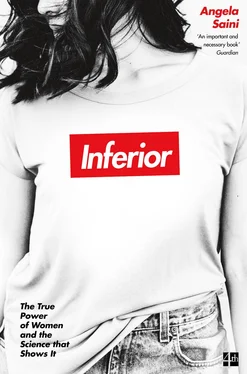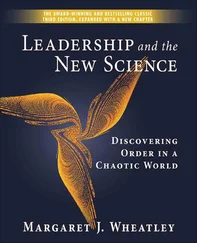Contents Cover Title Page Copyright Dedication Introduction 1 Woman’s Inferiority to Man 2 Females Get Sicker But Males Die Quicker 3 A Difference at Birth 4 The Missing Five Ounces of the Female Brain 5 Women’s Work 6 Choosy, Not Chaste 7 Why Men Dominate 8 The Old Women Who Wouldn’t Die Afterword Acknowledgements References Index By the Same Author About the Publisher
Copyright Contents Cover Title Page Copyright Dedication Introduction 1 Woman’s Inferiority to Man 2 Females Get Sicker But Males Die Quicker 3 A Difference at Birth 4 The Missing Five Ounces of the Female Brain 5 Women’s Work 6 Choosy, Not Chaste 7 Why Men Dominate 8 The Old Women Who Wouldn’t Die Afterword Acknowledgements References Index By the Same Author About the Publisher
4th Estate
An imprint of HarperCollins Publishers
1 London Bridge Street
London SE1 9GF
www.4thEstate.co.uk
This eBook first published in Great Britain by 4th Estate in 2017
Copyright © Angela Saini 2017
Cover photograph © Vanessa Serpas on Unsplash
The right of Angela Saini to be identified as the author of this work has been asserted by her in accordance with the Copyright, Design and Patents Act 1988
A catalogue record for this book is available from the British Library
All rights reserved under International and Pan-American Copyright Conventions. By payment of the required fees, you have been granted the non-exclusive, non-transferable right to access and read the text of this e-book on-screen. No part of this text may be reproduced, transmitted, down-loaded, decompiled, reverse engineered, or stored in or introduced into any information storage and retrieval system, in any form or by any means, whether electronic or mechanical, now known or hereinafter invented, without the express written permission of HarperCollins.
Source ISBN: 9780008172039
Ebook Edition © May 2017 ISBN: 9780008172046
Version: 2017-12-12
Dedication Contents Cover Title Page Copyright Dedication Introduction 1 Woman’s Inferiority to Man 2 Females Get Sicker But Males Die Quicker 3 A Difference at Birth 4 The Missing Five Ounces of the Female Brain 5 Women’s Work 6 Choosy, Not Chaste 7 Why Men Dominate 8 The Old Women Who Wouldn’t Die Afterword Acknowledgements References Index By the Same Author About the Publisher
For my boys, Mukul and Aneurin
Cover
Title Page Contents Cover Title Page Copyright Dedication Introduction 1 Woman’s Inferiority to Man 2 Females Get Sicker But Males Die Quicker 3 A Difference at Birth 4 The Missing Five Ounces of the Female Brain 5 Women’s Work 6 Choosy, Not Chaste 7 Why Men Dominate 8 The Old Women Who Wouldn’t Die Afterword Acknowledgements References Index By the Same Author About the Publisher
Copyright Copyright Contents Cover Title Page Copyright Dedication Introduction 1 Woman’s Inferiority to Man 2 Females Get Sicker But Males Die Quicker 3 A Difference at Birth 4 The Missing Five Ounces of the Female Brain 5 Women’s Work 6 Choosy, Not Chaste 7 Why Men Dominate 8 The Old Women Who Wouldn’t Die Afterword Acknowledgements References Index By the Same Author About the Publisher 4th Estate An imprint of HarperCollins Publishers 1 London Bridge Street London SE1 9GF www.4thEstate.co.uk This eBook first published in Great Britain by 4th Estate in 2017 Copyright © Angela Saini 2017 Cover photograph © Vanessa Serpas on Unsplash The right of Angela Saini to be identified as the author of this work has been asserted by her in accordance with the Copyright, Design and Patents Act 1988 A catalogue record for this book is available from the British Library All rights reserved under International and Pan-American Copyright Conventions. By payment of the required fees, you have been granted the non-exclusive, non-transferable right to access and read the text of this e-book on-screen. No part of this text may be reproduced, transmitted, down-loaded, decompiled, reverse engineered, or stored in or introduced into any information storage and retrieval system, in any form or by any means, whether electronic or mechanical, now known or hereinafter invented, without the express written permission of HarperCollins. Source ISBN: 9780008172039 Ebook Edition © May 2017 ISBN: 9780008172046 Version: 2017-12-12
Dedication Dedication Contents Cover Title Page Copyright Dedication Introduction 1 Woman’s Inferiority to Man 2 Females Get Sicker But Males Die Quicker 3 A Difference at Birth 4 The Missing Five Ounces of the Female Brain 5 Women’s Work 6 Choosy, Not Chaste 7 Why Men Dominate 8 The Old Women Who Wouldn’t Die Afterword Acknowledgements References Index By the Same Author About the Publisher For my boys, Mukul and Aneurin
Introduction
1 Woman’s Inferiority to Man
2 Females Get Sicker But Males Die Quicker
3 A Difference at Birth
4 The Missing Five Ounces of the Female Brain
5 Women’s Work
6 Choosy, Not Chaste
7 Why Men Dominate
8 The Old Women Who Wouldn’t Die
Afterword
Acknowledgements
References
Index
By the Same Author
About the Publisher
For centuries, scientists have influenced decision-makers on important issues including abortion rights, granting women the vote, and how schools educate us. They have shaped how we think about our minds and bodies, and our relationships with each other. And of course, we trust scientists to give us the objective facts. We believe that what science offers is a story free from prejudice. It is the story of us, starting from the very dawn of evolution.
Yet when it comes to women, so much of this story is wrong.
I must have been about sixteen years old, on the playing field of my school in south-east London, watching a home-made rocket zoom into the sky. It was a sunny Saturday afternoon. Fresh from the nerdy triumph of having been elected chair of the school’s first science society, I’d organised a day of building small model rockets before setting them off. I couldn’t think of anything better. The night before, I calculated whether we had enough construction materials for the crowds that were sure to come.
I shouldn’t have worried. On the day, I was the only one who turned up. My chemistry teacher Mr Easterbrook, a kind man, stayed and helped anyway.
If you were the geek growing up, you’ll recognise how lonely it can be. If you were the female geek, you’ll know it’s far lonelier. By the time I reached sixth form, I was the only girl in my chemistry class of eight students. I was the only girl in my mathematics class of about a dozen. And when I decided to study engineering a couple of years later, I found myself the only woman in a class of nine at university.
Things haven’t changed much since then. Statistics collected by the Women’s Engineering Society in 2016 show that only 9 per cent of the engineering workforce in the UK is female, and just over 15 per cent of engineering undergraduates are women. Figures from WISE, a campaign in the UK to promote women in science, engineering and technology, reveal that in 2015 women made up a little more than 14 per cent of their workforces overall. According to the National Science Foundation in the United States, although women make up nearly half the scientific workforce there, they remain under-represented in engineering, physics and mathematics.
Standing on that playing field by myself aged sixteen, I couldn’t figure it out. I belonged to a household of three sisters, all brilliant at maths. Girls stood alongside boys as the highest achievers at my school. According to the Women’s Engineering Society, there’s very little gender difference in take-up and achievement in the core science and maths subjects at GCSE level in British schools. Indeed, girls are now more likely than boys to get the highest grades in these subjects. In the USA, women have earned around half of all undergraduate science and engineering degrees since the late 1990s.
Читать дальше












